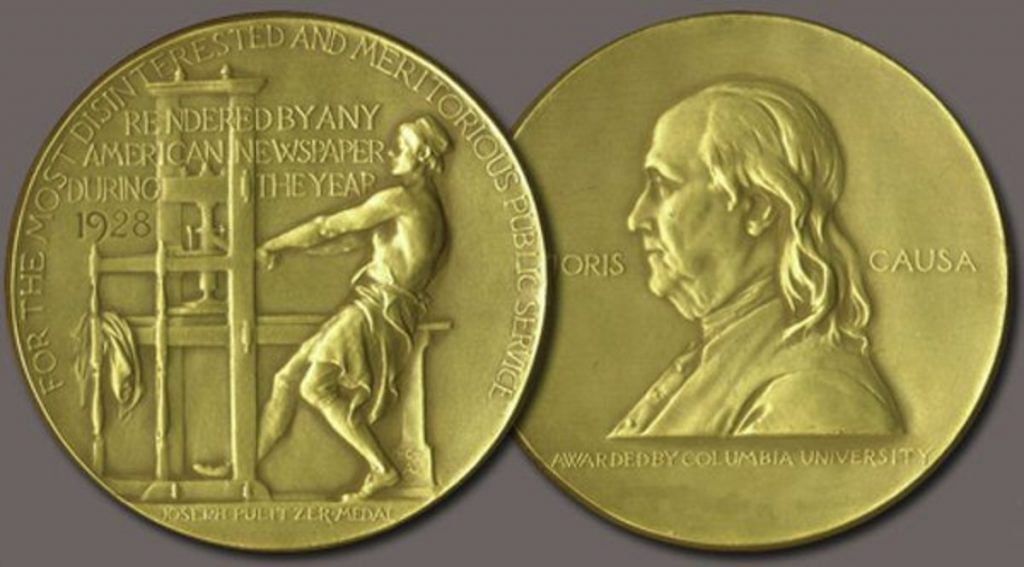Guess what just got added to the list of things you could do to be termed an anti-national in India? Win a Pulitzer Prize. Or if we’re being specific, appreciate a Kashmiri winning the Pulitzer Prize.
After three photojournalists from Jammu and Kashmir — Dar Yasin, Mukhtar Khan and Channi Anand — were awarded the 2020 Pulitzer Prize, India’s Right-wing bandwagon was very troubled by people appreciating their efforts to bring out stories from the conflict zone. It seems that an international committee lauding the efforts of three Kashmiri photojournalists became too much for the Right-wing to digest.
So, the Right-wing did what it does best with things it doesn’t like — call it anti-national. But it forgot that the Pulitzer celebrates the best in journalism, not political positions and causes. These three photographers documented what was happening on the ground, they were not making political statements. That is the duty of journalists. Pictures don’t lie or judge — they capture a moment.
Also Read: Times Now, Republic attack Rahul for Pulitzer comment & Sudhir Chaudhary’s ‘sharaab’ woes
International recognition
But the problem for those critiquing the Pulitzer for three Kashmiri photographers perhaps lay elsewhere.
Modi’s Hindu nationalist army of followers loves international recognition when it comes to Prime Minister Narendra Modi – even Time magazine cover articles and The New York Times op-eds are celebrated. Even PM Modi chose The New York Times to write an op-ed on Gandhi’s 150th birth anniversary. Bill Gates awarding Narendra Modi is a good thing, but a Pulitzer Prize is an anti-India act. It tied itself into several knots – are these photographer Indian or Kashmiri? After all, they spend the whole day saying Kashmir is an integral, inalienable part of India. But clearly, in their narrow worldview, Kashmiris aren’t.
For all the loudmouths, I have one thing to say, pick your battles. Is your problem that these journalists chose to document the sorry state of affairs created in the Valley by the actions of your esteemed government? Or is it that you can’t stand other international committees recognising and rewarding people for documenting it?
Also Read: Times Now, Republic attack Rahul for Pulitzer comment & Sudhir Chaudhary’s ‘sharaab’ woes
‘Anti-national’ Rahul Gandhi
The Pulitzer awarded to Kashmiri journalists was already a great hit to the Indian Right-wing ego. But things turned especially sour after Congress leader Rahul Gandhi stirred controversy, knowingly or unknowingly, by offering his congratulations to the ‘Indian’ photojournalists for their ‘powerful’ images of life in the Valley.
Congratulations to Indian photojournalists Dar Yasin, Mukhtar Khan and Channi Anand for winning a Pulitzer Prize for their powerful images of life in Jammu & Kashmir. You make us all proud. #Pulitzer https://t.co/A6Z4sOSyN4
— Rahul Gandhi (@RahulGandhi) May 5, 2020
BJP’s spokesperson Sambit Patra, otherwise known for his vile comments on prime time TV debates, unsurprisingly took serious offence to Gandhi’s congratulatory comments. Patra referred to a particular ‘citation’ of the Pulitzer awards, which claimed that these journalists were awarded the prize for “striking images of life in the contested territory of Kashmir as India revoked its independence, executed through a communications blackout”.
The citation of the Pulitzer award to the three so called Indian journalists:
1)Why did these journalists accept this award ..an award is important or the sovereignty of your Nation is?
2)Rahul Gandhi & @INCIndia congratulates them ..Does Rahul concur?#AntiNationalRahulGandhi pic.twitter.com/p7aywWDp7y— Sambit Patra (@sambitswaraj) May 5, 2020
Everyone could already sense the next question on Patra’s mind, “Mr Rahul, is Kashmir an integral part of India?” Naturally, many others, like BJP’s IT cell chief Amit Malviya jumped on the bandwagon and asked Rahul to clear his stance on Kashmir.
Also Read: 3 photojournalists win Pulitzer for Kashmir coverage. Here’s list of Indians who won in past
A new level of ‘whataboutery’
‘Whataboutery’ has become the Right-wing’s favourite weapon to push propaganda on social media. But the Pulitzer announcement has taken it to a whole new level.
An unnecessary dose of whataboutery brings false equivalences and counterfactuals to the table. Apart from these obvious problems, the Indian Right-wing seems to have forgotten some of the lessons it has preached.
After the dilution of Article 370, Prime Minister Modi and his party members have gone to different lengths to assert that Kashmiris must be treated like our brothers and sisters. Apart from that, on many occasions, the Right-wing has claimed that all Kashmiris are Indians and must be welcomed like that.
Despite these stances in the past, the Indian Right-wing seems to have fallen into their own trap. It wants us to view Kashmiris as Indians generally, but not when they win a Pulitzer.
Some also demanded that India start its own Pulitzer Prize because they simply couldn’t agree with the choice of its selection committee. Others shared pictures of CRPF men with Kashmiris and complained that these won’t win awards because it ‘doesn’t fit a narrative’.
But before an Indian Pulitzer, let’s celebrate our awardees this year and the many more journalists deserving of such awards — the people who have set the standards of what free press should look like.
Views are personal.
